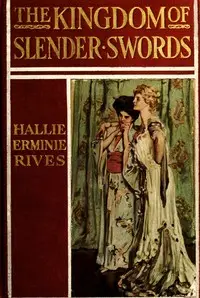"The Wanderer; or, Female Difficulties (Volume 4 of 5)" by Fanny Burney is a captivating novel that brings to life the trials of Juliet, a woman who faces suspicion and fights for independence against the backdrop of societal constraints and strong-willed figures like Mrs. Howel and the protective Lord Melbury. The story presents Juliet's battle with accusations and her attempts to navigate a world that restricts her freedom, highlighting the strict gender roles and moral expectations of the time. Early on, Juliet faces intense accusations from the formidable Mrs. Howel, leading to a defense by Lord Melbury that reveals his growing feelings for her. Burdened by threats to her reputation, Juliet turns to Lady Aurora, seeking both safety and understanding. The story masterfully blends social observations with romantic undercurrents, promising a rich exploration of relationships and thorny moral questions.

The Wanderer; or, Female Difficulties (Volume 4 of 5)
By Fanny Burney
In a world of rigid expectations, a woman's quest for freedom ignites a blaze of accusations, protective gestures, and hidden affections.
Summary
About the AuthorFrances Burney, also known as Fanny Burney and later Madame d'Arblay, was an English satirical novelist, diarist and playwright. In 1786–1790 she held the post of "Keeper of the Robes" to Charlotte of Mecklenburg-Strelitz, George III's queen. In 1793, aged 41, she married a French exile, General Alexandre d'Arblay. After a long writing career and wartime travels that stranded her in France for over a decade, she settled in Bath, England, where she died on 6 January 1840. The first of her four novels, Evelina (1778), was the most successful and remains her most highly regarded, followed by Cecilia (1782). Most of her stage plays were not performed in her lifetime. She wrote a memoir of her father (1832) and many letters and journals that have been gradually published since 1889, forty-nine years after her death.
Frances Burney, also known as Fanny Burney and later Madame d'Arblay, was an English satirical novelist, diarist and playwright. In 1786–1790 she held the post of "Keeper of the Robes" to Charlotte of Mecklenburg-Strelitz, George III's queen. In 1793, aged 41, she married a French exile, General Alexandre d'Arblay. After a long writing career and wartime travels that stranded her in France for over a decade, she settled in Bath, England, where she died on 6 January 1840. The first of her four novels, Evelina (1778), was the most successful and remains her most highly regarded, followed by Cecilia (1782). Most of her stage plays were not performed in her lifetime. She wrote a memoir of her father (1832) and many letters and journals that have been gradually published since 1889, forty-nine years after her death.


















